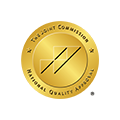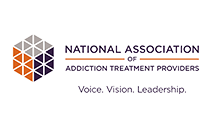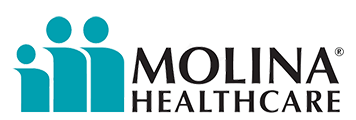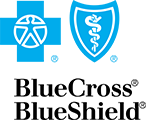Believe in Yourself
Seacrest Recovery Center OH
Providing substance abuse and mental health treatment, utilizing proven therapeutic methods and individualized treatment tailored to your specific needs
Will Outpatient Drug Rehab Work For Opiate Addiction?
Before they were considered addictive, physicians indicated opioids for pain relief because of their strong analgesic characteristics. However, physicians noted an increase in the public’s abuse of the medications due to its addictive and euphoric effects. The continuous misuse of these drugs led to a global epidemic’s rupture linked to the loss of more than 40,000 American lives in 2016. Furthermore, the crisis has tormented thousands of lives, both young and old, including their financial, social, and health status.
Although treating patients with opioid use disorder (OUD) is challenging, numerous programs have been proven effective. Outpatient drug rehab is among the available treatment programs for patients suffering from the addictive properties of opiates. Here is a quick insight into the outpatient drug model and its effectiveness in relieving addiction.
Definition of outpatient treatment
Outpatient treatment is a rehab model that encompasses various kinds of programs that do not include being constrained to a particular residential structure. Therapy involves visiting a counselor or the center on stipulated days to monitor the progress of the treatment. It differs from the famous inpatient program by lacking a round clock supervision, housing, and medical care. Additionally, the intensity of the counselor visits vary and rely on the status of the patient.
Activities to expect from an outpatient treatment therapy
In outpatient drug therapy, expect to receive partial hospitalization when necessary, individual or group counseling. You might learn the effects of substance abuse and develop skills like anger management and financial responsibility. Additionally, you would have a chance to join a self-help support group like Narcotics Anonymous and train on preventing possible relapse.
Types of outpatient drug therapy
The structure of an outpatient rehabilitation program is custom-made for the patient to achieve positive outcomes. When you visit an outpatient treatment facility, expect to answer questions regarding your past drug use, cognitive health problems, and legal disputes. The staff might ask questions related to your family issues, employment status, current medication, and past treatment history. You should ensure that you consistently attend the treatment sessions to benefit maximally from the program.
Standard outpatient program
The standard outpatient treatment plan involves at least one or two weekly visitations to the clinic. Each session lasts about two hours, making it the least intense outpatient drug model. Moreover, there is little to no medical supervision with counseling that might occur within a group or individually.
Intensive outpatient programs
Participants involved in the intensive outpatient program (IOP) are expected to attend the session for at least 10 hours every week. The program involves individual counseling, group counseling, drug testing, case management, and medication. If doctors diagnose you with a less severe form of opioid addiction, they might place you on IOP instead of inpatient rehabilitation. Research indicates that IOP is equally effective compared to inpatient treatment programs in treating addiction and prolonging abstinence in patients.
Partial hospitalization programs
Partial hospitalization programs (PHP) are similar to inpatient treatment rehabilitation because they occur inside hospitals or clinics. Additionally, the session might occur for eight hours every day for at least seven days. You should expect psychiatric care, family therapy, medications, recreation, individual or group therapy, and routine medical care. PHP usually serves as a transitioning platform for inpatient participants or individuals who plan to avoid residential treatment.
Therapies used in outpatient drug rehabilitation
The therapies employed in the outpatient treatment differ and rely on the type of substance abused, any underlying mental disorders, and other factors. Some of the evidence-based therapies commonly applied include cognitive-behavioral therapy (CBT) and motivational interviewing. Others include contingency management, the Matrix Model, and family therapy, where the latter is useful when combined with the former in adolescents. You can use medication approved by the Food and Drug Administration in managing opioid addiction, such as methadone, naltrexone, and buprenorphine, by getting a prescription.
Who might benefit from outpatient therapy
Although outpatient drug rehabilitation sounds promising and a great choice, it is however not beneficial to all participants. You can benefit maximally from an outpatient program if you have:
- Mild or moderate opioid addiction.
- Low risk of developing withdrawals or complication.
- Good support system.
- Motivation to consistently attend sessions.
- Transportation means to the clinic.
- Effectiveness of outpatient treatment
Since addiction is a relapsing condition, outpatient treatment programs have shown positive results from various studies and reviews. For instance, a review involving another review and 12 studies indicates that PHP and IOP caused a higher abstinence rate than inpatient programs. Another research showed significant improvement higher than those recorded in patients under residential programs did. Relapsing does not necessarily mean the participant failed but in an indication that the rehabilitation program requires adjustments.
Opioid addiction can wreak havoc in your life, but we are here to offer you the assistance you require. Our counselors are accessible 24 hours a day.
Today Is The Day
You Never Have To Feel This Way Ever Again
One simple call to our caring and compassionate staff, and you can be on your way to a lifetime of freedom and recovery

As Seen On Hulu
Seacrest Recovery Center is The Featured Drug & Alcohol Rehab on Jelly Roll's Save Me Documentary on Hulu Originals
Trusted Treatment Provider
Certified and Accredited Both Locally and Nationwide



Our Clients Believe In Us
And We Believe In Them!
Here Is What They Are Saying
About Seacrest Recovery
Your First Step To Recovery
Our Locations

Columbus OH

Eatontown NJ

Willard OH











